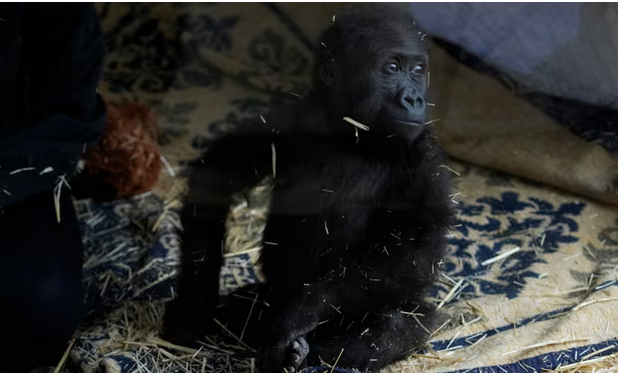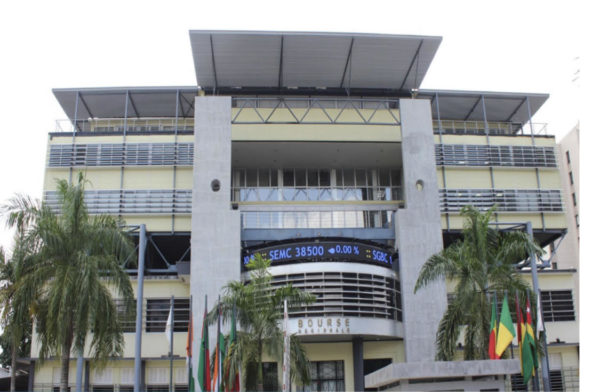The recent interception of a baby gorilla at Istanbul Airport—smuggled from Nigeria and en route to Thailand—has once again spotlighted the global criminal networks thriving off Africa’s endangered wildlife. As Nigeria scrambles to work with Turkish authorities to repatriate the primate, the incident underscores a much deeper, systemic crisis: the illicit wildlife trade pipeline connecting Africa’s dwindling biodiversity to the high-value black markets of Europe and Asia.
According to Nigeria’s Ministry of Foreign Affairs, the rescued gorilla, reportedly trafficked from Nigeria’s dense rainforest regions, was classified under Appendix I of the Convention on International Trade in Endangered Species of Wild Fauna and Flora (CITES)—reserved for species facing imminent extinction. This classification means that any trade involving such animals is strictly forbidden unless for scientific or conservation purposes.
The Shadow Economy of Wildlife. Despite this global legal framework, Africa’s endangered species—from pangolins and primates to elephants and big cats—are disappearing at alarming rates. Nigeria, in particular, has emerged as a leading source and transit hub for illicit wildlife products, including ivory, rhino horn, gorilla parts, and pangolin scales.
From the forested Cross River National Park in the southeast to the trade hubs of Lagos and Calabar, wildlife trafficking networks exploit weak governance, porous borders, underfunded enforcement agencies, and high demand in international markets. The country’s central location and major shipping infrastructure make it an ideal gateway for smuggling to Asia, particularly Vietnam, China, and Thailand, where traditional medicine and exotic pet trades remain powerful pull factors.
“Smuggling baby gorillas is not just an animal welfare concern—it’s a transnational crime with deep links to organized syndicates,” said a representative of the Environmental Investigation Agency (EIA). “This is biodiversity theft on an industrial scale.”
Why the Trade Persists. At the heart of the problem is Nigeria’s struggle to enforce its own environmental laws. While the country ratified CITES in the 1970s and passed the Endangered Species Act of 1985, enforcement remains patchy and often ineffective.
“Wildlife crime in Nigeria is rarely prosecuted with the seriousness it deserves,” noted Dr. Ngozi Ekwueme, a legal expert in environmental law at the University of Lagos. “There are clear laws on paper, but political will and institutional coordination are sorely lacking.”
This legal inertia is compounded by structural problems: underfunded agencies, outdated border surveillance technologies, lack of training for customs officials, and systemic corruption. Although agencies like the Nigerian Agricultural Quarantine Service and the Federal Ministry of Environment have ramped up interventions, the smuggling networks remain agile, often aided by complicit officials.
Conservation in Crisis
The smuggling of the baby gorilla is particularly devastating given its likely origin from Nigeria’s Cross River National Park—the last stronghold of the critically endangered Cross River gorilla (Gorilla gorilla diehli), of which fewer than 300 remain in the wild.
The park, part of the broader Guinean Forest biodiversity hotspot, is also home to forest elephants, chimpanzees, and pangolins—all of which are now facing extinction. These species are increasingly being pushed into human settlements due to habitat loss and poaching, further fueling human-wildlife conflict. Recent investigations have shown that herders and farmers often kill these animals either in self-defense or in retaliation for crop damage.
In addition to the ecological costs, the economic implications are dire. According to a 2023 report by the African Wildlife Foundation, Africa loses approximately $1.3 billion annually to wildlife trafficking. This not only threatens long-term biodiversity but also undermines potential eco-tourism revenue—a vital non-oil sector for Nigeria’s diversification ambitions.
Regional and Global Ramifications. The broader implications of Nigeria’s illegal wildlife trade extend beyond environmental conservation. Wildlife trafficking is now widely recognized as a security issue. The United Nations Office on Drugs and Crime (UNODC) has linked poaching and trafficking to terrorist financing, regional instability, and organized crime syndicates that also engage in arms and drug trafficking.
The proliferation of these crimes also undermines global biodiversity treaties and weakens Nigeria’s standing on the international environmental stage. The country’s failure to protect its iconic species could lead to sanctions or reduced funding from international conservation donors.
Moreover, there’s the public health dimension. Wildlife trafficking increases the risk of zoonotic disease transmission—dangerous pathogens jumping from animals to humans—potentially sparking the next global pandemic. The smuggling of primates, in particular, is a known vector for such risks.
Toward a Way Forward. While the Nigerian government has pledged to tighten surveillance at airports, seaports, and land borders, experts argue that more systemic reforms are urgently needed. These include Judicial reform to prioritize wildlife crimes with stricter sentencing and no room for plea bargaining. Investment in border surveillance technologies such as thermal imaging, canine units, and AI-powered cargo scanning systems. Public-private partnerships to fund conservation, especially in local communities living near protected areas.
Community-based conservation models that incentivize locals to protect rather than exploit wildlife. International collaboration, particularly with countries like Vietnam, China, and Thailand, to dismantle demand-side networks through joint intelligence sharing.
Meanwhile, the safe return of the baby gorilla to Nigeria would be a symbolic win in an otherwise grim battle. The government has reaffirmed its commitment to biodiversity conservation and has promised to hold the smugglers accountable. But as long as the underlying drivers of demand and the enablers of corruption remain unaddressed, the trafficking of Africa’s most vulnerable species will continue—quietly but catastrophically.
As conservationists await justice for the gorilla, Nigeria faces a sobering truth: protecting its biodiversity is no longer just a moral obligation; it is a matter of national security and economic survival.
Top African Species Threatened by Trafficking
- Pangolins – Highly trafficked for scales used in traditional medicine.
- Gorillas & Chimpanzees – Taken for the exotic pet trade and bushmeat.
- African Grey Parrots – Popular in the pet trade despite population decline.
- Elephants – Hunted for ivory, especially in northern Nigeria.
- Big Cats (Leopards, Lions) – Body parts used in rituals and fashion.




